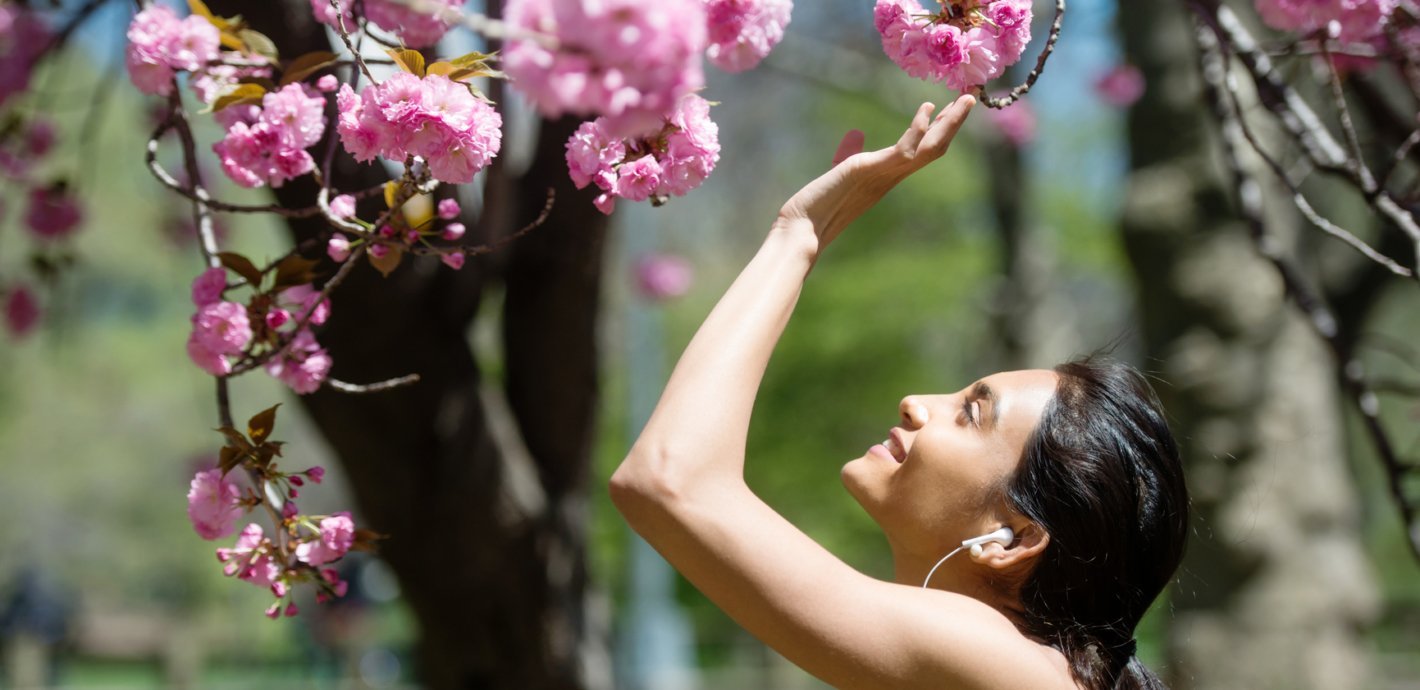In Ayurveda, contemplating our relationship with our scenic surroundings is an all-year-round affair, not just on Earth Day. The connections between nature, the body, and the universe are very commonly addressed in Ayurvedic texts as well as ancient Indian texts, including the Upanishad, which says that the elements that make up the universe are the same elements that make up the body. The connection between nature and humans is so deep, in fact, that the Sanskrit word prakruti is often used to describe both “nature” and a person’s state of being or overall constitution.
To put it simplistically, the well-being of the universe has a direct impact on the well-being of humans, and vice versa, according to Ayurveda, but that’s just one of the many ways our bodies and nature are intertwined.
Wind, Water, and Fire
If you know a little about Ayurveda already, you are probably familiar with the three body types: pitta (fire), vata (wind), and kapha (water.) Obviously, these types come directly from nature and demonstrate how deeply linked humans are to the earth itself. The Charaka Saṃhitā, the first Ayurvedic textbook, says that the body is made functional by three essential entities: soma (water), surya (fire), and anila (wind). It further explains that nature and the human body are so closely related that the fire, water, and wind control the body. For humans, food is the carrier, or channel, that brings these three natural elements into the body, which is one of the reasons the Ayurvedic diet is so specific.
A Symbiotic Relationship
What is perhaps most fascinating about the our relationship with nature is that even the ancient texts acknowledged that it’s a two-way street. We have a profound impact on nature, just as it does on us.
Food is the sustainer of life in Ayurveda, and the six tastes actually come from the six seasons in nature. Each season brings about one taste as an expression in food. So for example, sweet is the taste of spring. What’s more, the hot and cold states of nature (also known as seasons), which are due to movement of the sun, are reflected in food. This means that foods are either considered hot or cold in potency with relationship to the human metabolism, either speeding things up or slowing them down based on their inherent properties.
Beyond that, the Ayurvedic advice about which foods to eat is highly in tune with nature: Whatever is grown, or available, in your area will be best for your body. So for example, if you live in California, whatever can grow in this climate is what you should be eating. By eating seasonally and locally, you not only nourish your body and prevent disease, but also promote the cultivation of the land around you.
Related: Guidelines for Eating the Ayurvedic Way
Medicines are also collected directly from nature in Ayurveda. There are three types of sources: herbal, animal, and mineral. And while humans can cultivate herbs and substances from the earth that can heal, this is a prime example of how the relationship definitely goes both ways. With reference to epidemics or viral contagious disease, the Charaka says that they are caused due to imbalance of the collective consciousness of the people living in that region. An overall negative collective consciousness impacts all things in the vicinity. The Charaka says that a wise practitioner of Ayurveda should collect the herbs and other medicinal substances used to treat these diseases from other regions.
Our impact on the environment also comes in more concrete forms, such as pollution and reduction of green spaces. Our surroundings are still undoubtedly influenced by our collective consciousness, so working toward a positive state of mind is very beneficial for the physical world at large.
The Power of Rejuvenation
The last topic I want to touch on is perhaps the most important. Ayurveda has an established tradition of investing in the rejuvenative powers of nature, and has long acknowledged what happens when we lose our connection to it.
The Charaka tells a story about rejuvenation that involves two groups of sages: One group lived in their huts in the forest, and the other ventured into society. Eventually, those sages who lived in society got all kinds of diseases. The text explains that the civilized way of living caused these diseases, which could be characterized as “lifestyle diseases”—certainly something we see frequently today.
To address those lifestyle diseases, the sages, who were living in cities and towns, went back to their original lives in huts in the forest. They realized that the pollution of thought, food, and water innate in civilized life caused them to become ill.
The moral of the story? Of course, it’s not that we should stop living in cities and towns—that would be impractical. But when when it comes to the civilized way of living, we should recognize that there’s an inevitable stress factor. That stress factor plays a significant role in producing these unique diseases that didn’t occur when people were living in their natural surroundings.
In order to combat this, spending more time in nature can provide some level of rejuvenation. Modern science has shown time and again that there are real, tangible benefits to being outside and connecting with your natural environment, from reducing cortisol levels to reducing inflammation and even lowering blood pressure. With this in mind, it seems logical that we begin to see the environment as a part of the solution to the health problems that come along with modern life—one that’s worth protecting.








Comments (0)